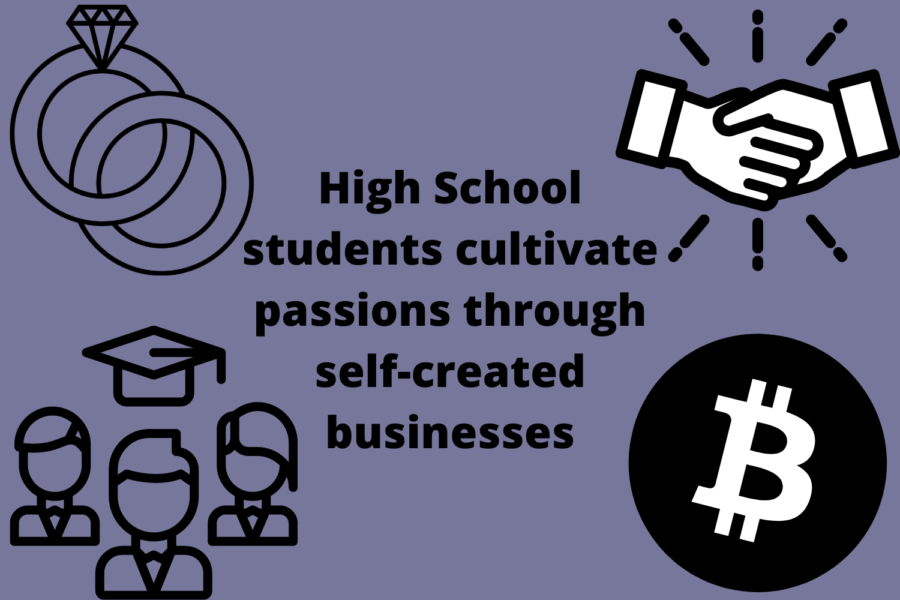Throughout high school, students are often encouraged to explore their passions. Some students take their interests and apply them to create businesses in their respective fields. Many plan to continue running these businesses and have goals for the future.
Isabella Muri (’22) said her passion for fashion inspired her to create an ethical jewelry business called A Perdifiato. She said she initially started the business as an ethical faux fur business with the items made from recycled fiber.
Muri said she decided to transition A Perdifiato into solely a jewelry business during COVID-19 when she realized how unprofitable the faux fur business is and the extensive competition she would face. She said her jewelry products continue to be sustainably produced as they are made from repurposed silver and moissanite diamonds, which are ethical alternatives to real diamonds.
“I still wanted to embody our generation’s values within the product that we were selling, but it just would not be through faux fur,” she said. “The cyclical nature of selling faux fur also encouraged that transition to ethical jewelry.”
Muri said she used to sell her faux fur products at Net-a-Porter before recognizing that “it was too inconsistent for us in terms of them coming back and re-buying the next season.” She said the inconsistency led her to adopt the business-to-consumer model instead and thus, all A Perdifiato products are exclusively sold online.
I still wanted to embody our generation’s values within the product that we were selling.
— Isabella Muri ('22)
Maisie Rosenberg (’24) said she also sells jewelry at a local farmers market in her hometown of Big Sky, Montana. She said her love for Montana influences the jewelry she makes and with the profits earned, she donates to Yellowstone Park.
“I fell in love with Yellowstone when I was nine or 10 and we’ve been going back every year,” she said. “Whenever I’m designing a piece, I take the colors from a specific landscape.”
Rosenberg said she makes most of the jewelry herself over the summer and that “there is not a huge need for [her] to make a lot of products before.” She said she buys the materials online and at a local bead store and finds rocks near the river in Montana.
However, Rosenberg said she encountered multiple challenges with running her business, including buying supplies based on demand at the farmers market. In addition, while trying to continue her business in London, she said she realized the difficulties of running an overseas business outweighed the rewards.
“I did have an Etsy store at one point, but shipping was so expensive back to the U.S.,” she said. “It wasn’t quite worth me investing all that money and only getting one or two sales out of it.”
Meanwhile, Arthur Sadrian (’23) said he joined a pre-existing business called Diremo, which acts as a digital marketplace to buy and sell products through cryptocurrency. Translating cryptocurrency to real money requires commission, but Sadrian said Diremo can eliminate the additional cost.
Like Rosenberg, Sadrian said multiple challenges arise with companies operating across different countries. He said his co-workers are located in multiple locations, which makes it difficult to communicate.
It’s taught me to be resourceful and get stuff done immediately. If you do that, not only do you project to your coworkers that you are a trustworthy person, but you also really get to hone in on those applicable life skills that will undoubtedly come in handy when we’re in an actual working environment.
— Arthur Sadrian ('23)
“It’s still a challenge to connect from Boston to London to Milan and have that connection be super sturdy,” he said. “We are a small team for efficiency reasons, but being a small team also puts a higher workload on us.”
Sadrian said he has already begun his role of writing articles to publicize Diremo. He said while there are challenges when working in the group, his position in the company has taught him how to be productive and responsible.
“It’s taught me to be resourceful and get stuff done immediately,” he said. “If you do that, not only do you project to your coworkers that you are a trustworthy person, but you also really get to hone in on those applicable life skills that will undoubtedly come in handy when we’re in an actual working environment.”
Muri said her ability to interact with others has also improved after starting her business. Since the company did not have funding to pay for Google advertisements, she said she began proactively cold calling U.S. influencers and retailers.
“My ability to interact with strangers and be productive with people that I’ve never met before has been augmented massively,” she said. “It develops resilience in you learning that 90% of the time you’re going to get a ‘no,’ but that 10% is going to be a ‘yes.’ That’s really the defining factor between businesses that stay afloat and businesses that don’t.”
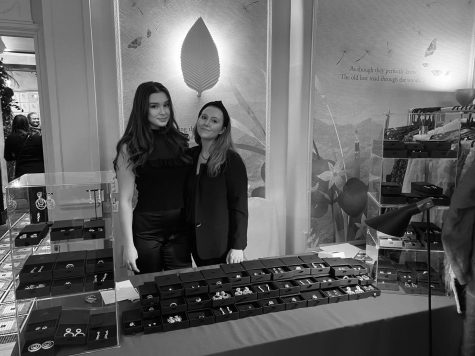
Muri said changing to a business-to-consumer model has given her more liberty in creating the products. Therefore, she said she has learned many valuable skills, including how to market products and place them online.
However, Muri said a future goal could be to find in-store retailers that would sell A Perdifiato’s products.
“Even though it’s very difficult to find someone who consistently comes back year after year, once you secure that partnership, it’s very reliable and profitable,” she said.
Ultimately, Sadrian said his long-term goal for Diremo is to have a more significant impact in the cryptocurrency field and have many people utilize their platform.
“Ideally, we would love to garner a large sphere of influence and be able to have it so any person looking to buy with crypto gets redirected to our platform,” he said. “This is a very long-term goal, but we’re putting one foot in front of the other and seeing how it pans out.”
This story was originally published on The Standard on May 17, 2022.



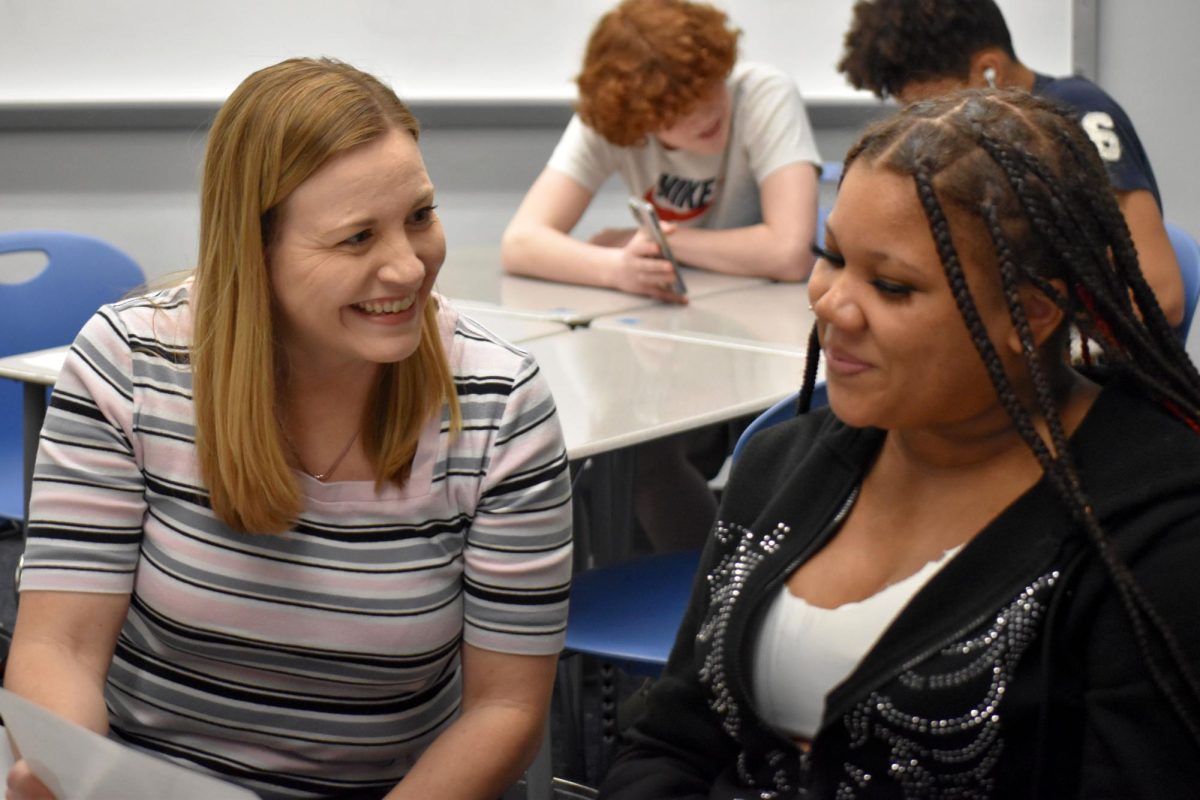
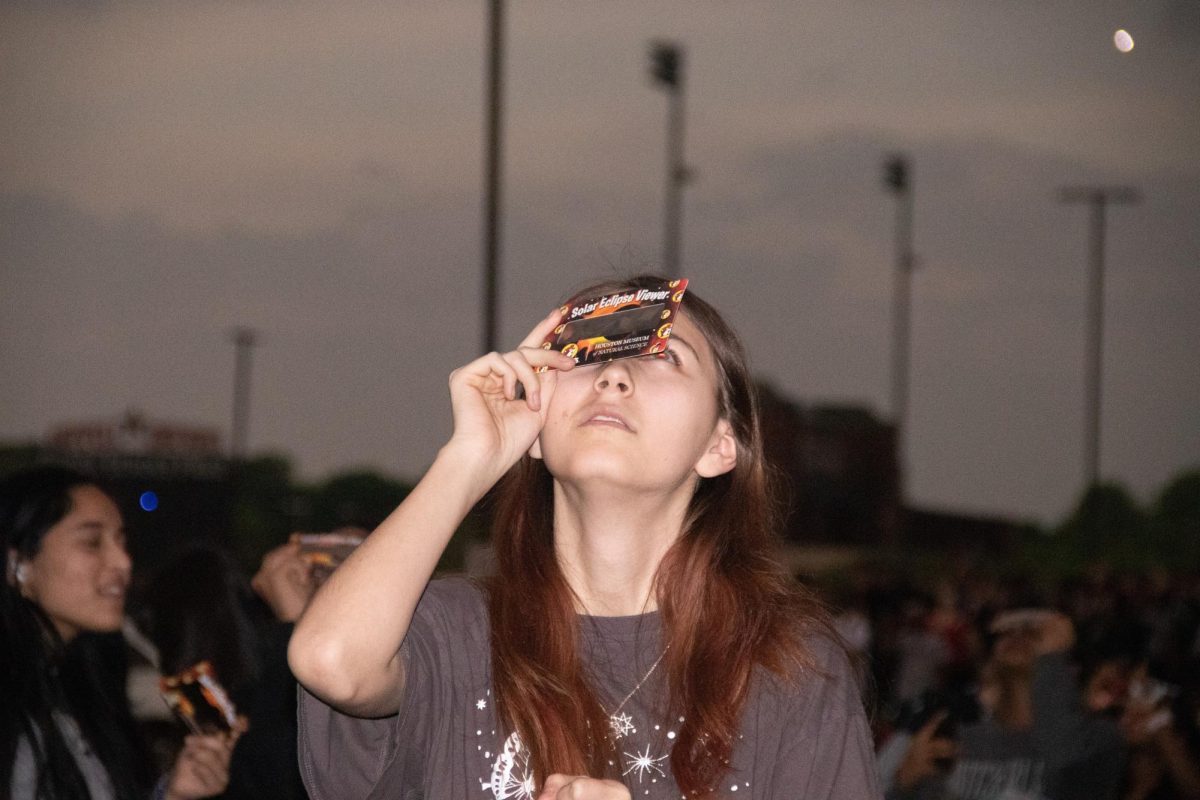










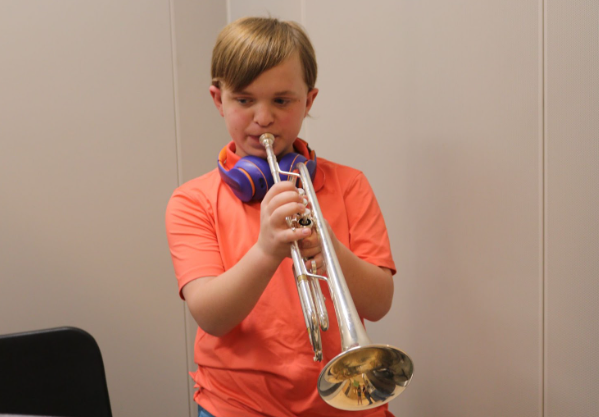

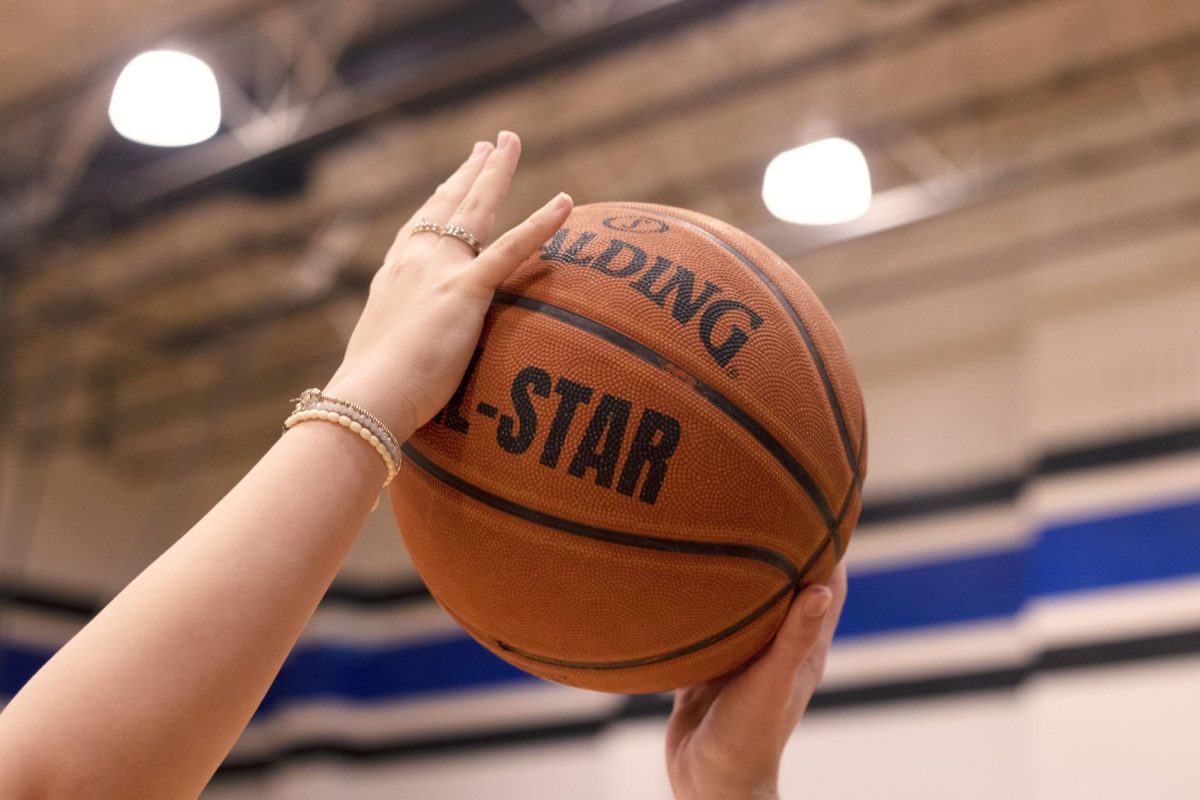









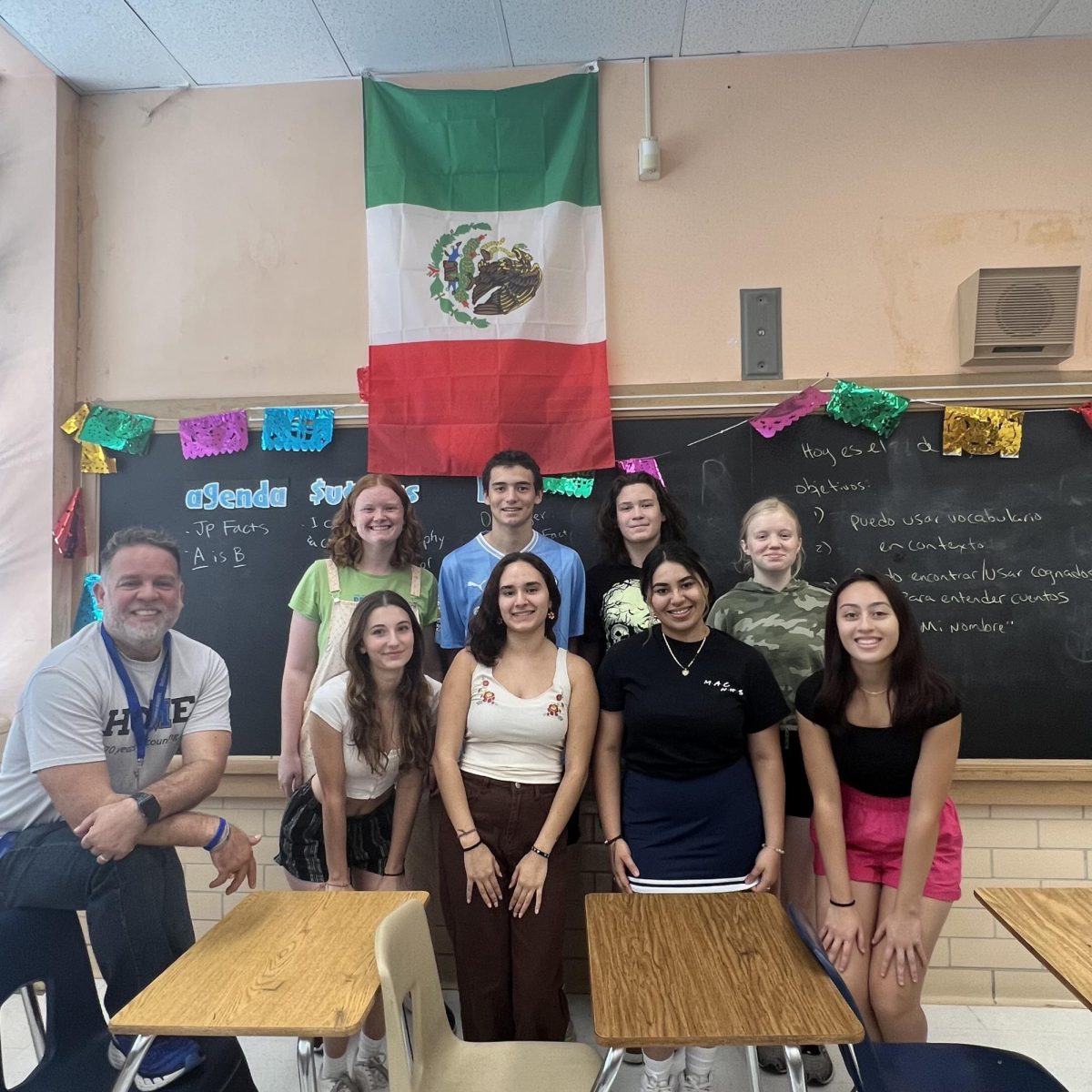

![IN THE SPOTLIGHT: Junior Zalie Mann performs “I Love to Cry at Weddings,” an ensemble piece from the fall musical Sweet Charity, to prospective students during the Fine Arts Showcase on Wednesday, Nov. 8. The showcase is a compilation of performances and demonstrations from each fine arts strand offered at McCallum. This show is put on so that prospective students can see if they are interested in joining an academy or major.
Sweet Charity originally ran the weekends of Sept. 28 and Oct. 8, but made a comeback for the Fine Arts Showcase.
“[Being at the front in the spotlight] is my favorite part of the whole dance, so I was super happy to be on stage performing and smiling at the audience,” Mann said.
Mann performed in both the musical theatre performance and dance excerpt “Ethereal,” a contemporary piece choreographed by the new dance director Terrance Carson, in the showcase. With also being a dance ambassador, Mann got to talk about what MAC dance is, her experience and answer any questions the aspiring arts majors and their parents may have.
Caption by Maya Tackett.](https://bestofsno.com/wp-content/uploads/2024/02/53321803427_47cd17fe70_o-1-1200x800.jpg)
![SPREADING THE JOY: Sophomore Chim Becker poses with sophomores Cozbi Sims and Lou Davidson while manning a table at the Hispanic Heritage treat day during lunch of Sept 28. Becker is a part of the students of color alliance, who put together the activity to raise money for their club.
“It [the stand] was really fun because McCallum has a lot of latino kids,” Becker said. “And I think it was nice that I could share the stuff that I usually just have at home with people who have never tried it before.”
Becker recognizes the importance of celebrating Hispanic heritage at Mac.
“I think its important to celebrate,” Becker said. “Because our culture is awesome and super cool, and everybody should be able to learn about other cultures of the world.”
Caption by JoJo Barnard.](https://bestofsno.com/wp-content/uploads/2024/01/53221601352_4127a81c41_o-1200x675.jpg)





